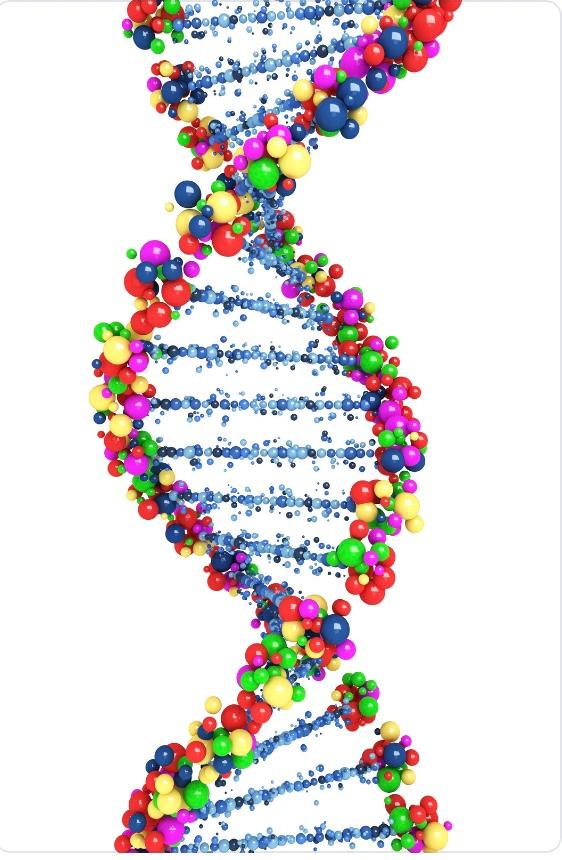Depression is a common mental health condition that affects millions of people worldwide. While there are various treatment options available, finding the right medication can be a challenging and often frustrating process. In recent years, genetic testing has emerged as a potential tool to personalize antidepressant medication selection and dosing. By analyzing an individual’s genetic makeup, clinicians can gain insights into how they may respond to specific medications and avoid prescribing psychiatric medications that may have undesirable outcomes. This article explores the benefits of genetic testing for anti-depressant medications and its potential to revolutionize mental illness treatment.
Understanding genetic testing and pharmacogenomics
Genetic testing, also known as pharmacogenomics or pharmacogenetic testing, is the study of how a person’s genes influence their response to drug treatment. It involves analyzing specific genes that determine how quickly a drug is processed, or metabolized, in the body. By identifying genetic variations, clinicians can predict how a patient is likely to respond to certain medications and adjust treatment accordingly.
Pharmacogenomic testing combines the science of pharmacology (how drugs work) and the science of genomics (the study of the human genome).
Typically researchers initially assess the patients’ CYP2D6 and CYP2C19 genotypes and determine the starting dose of antidepressants based on these test results.
The potential benefits of genetic testing for anti-depressant medications
- Personalized treatment: Genetic testing allows clinicians to tailor antidepressant treatment based on an individual’s genetic profile. By identifying genetic variants, clinicians can determine which medications are more likely to be effective and at which dosage. This personalized approach minimizes the need for trial and error and can lead to more efficient treatment outcomes
- Improved efficacy: Studies have shown that individuals who undergo genetic testing for mental health medications are more likely to respond positively to treatment. By selecting medications that align with an individual’s genetic profile, clinicians can increase the likelihood of achieving symptom relief and overall improvement in mental health
- Reduced risk of side effects: Genetic testing can also help identify individuals who may be at a higher risk of experiencing adverse side effects from certain antidepressant medications. By avoiding medications that may cause significant side effects based on genetic variations, patients can minimize the potential for discomfort and improve their overall treatment experience
- Cost savings: The trial-and-error process of finding the right antidepressant medication can be costly, both financially and in terms of time and emotional well-being. Genetic testing can help streamline this process by providing valuable information upfront, reducing the need for multiple medication trials, and potentially saving patients both time and money
- Enhanced patient-provider Collaboration: Genetic testing can empower patients to actively participate in their treatment decisions. By understanding their genetic profile and how it relates to medication response, patients can engage in informed discussions with their healthcare providers and work together to develop a personalized treatment plan
The science behind genetic testing for anti-depressant medications
Genetic testing for anti-depressant medications involves analyzing specific genes that play a role in drug metabolism and response. These genes can influence how quickly a medication is metabolized and eliminated from the body, as well as how the drug interacts with receptors in the brain.
Pharmacokinetic effects: Certain enzymes control the rate at which the body breaks down medications. Genetic variations in these enzymes can impact how quickly or slowly a drug is metabolized. For example, if a patient has a genetic variation that leads to slow metabolism of a specific medication, they may require a lower dosage to avoid potential side effects. On the other hand, if a patient metabolizes a drug quickly, a higher dosage may be necessary to achieve therapeutic benefits.
Pharmacodynamic effects: Genetic variations can also impact how an individual’s body responds to a medication. For example, certain genetic mutations may alter the activity of receptors in the brain, affecting how well a medication binds to these receptors and exerts its therapeutic effects. By understanding these genetic variations, clinicians can select medications that are more likely to interact effectively with an individual’s unique genetic profile.
The role of clinical studies and expert recommendations
Numerous clinical studies have explored the efficacy of genetic testing for anti-depressant medications. While the results have been promising, it is important to note that genetic testing is still considered an evolving field, and further research is needed to fully understand its impact on treatment outcomes.
Expert recommendations regarding the use of genetic testing for anti-depressant medications are also crucial in guiding clinical practice. Several professional organizations, including the American Psychiatric Association and the Food and Drug Administration, have issued guidelines and statements cautioning against the routine use of genetic testing in choosing antidepressant treatments. These organizations emphasize the need for more robust evidence and recommend a personalized approach that considers a patient’s clinical history, symptoms, and other relevant factors.
Accessing genetic testing for anti-depressant medications
Genetic testing for anti-depressant medications is typically ordered by licensed healthcare providers. The process involves collecting a DNA sample, either through a cheek swab or a blood draw. The sample is then sent to a laboratory for analysis, where the patient’s genetic profile is assessed. Once the results are available, healthcare providers can interpret the findings and use them to inform treatment decisions.
It is important to note that genetic testing for anti-depressant medications may not be covered by insurance, as it is still considered an emerging field. However, the cost of genetic testing has become more affordable in recent years, making it more accessible to patients who are interested in obtaining personalized treatment recommendations.
The future of genetic testing for anti-depressant medications
As the field of pharmacogenomics continues to advance, genetic testing for anti-depressant medications holds great potential. Ongoing research and technological advancements may lead to the discovery of additional genetic markers and a deeper understanding of how genetics influence antidepressant responses. This could pave the way for more precise and effective treatment approaches in the future.
It is essential to recognize that genetic testing is just one piece of the puzzle in mental health treatment. While it can provide valuable insights, it should be used in conjunction with thorough clinical evaluations, patient history, and ongoing monitoring to ensure the best possible outcomes for individuals with depression.
Conclusion
Genetic testing for anti-depressant medications offers the potential to revolutionize mental health treatment by providing personalized insights into medication selection and dosing. By analyzing an individual’s genetic profile, clinicians can optimize treatment outcomes, improve efficacy, reduce side effects, and enhance patient-provider collaboration. While genetic testing is not yet considered standard practice, ongoing research and expert recommendations continue to shape its role in mental health care. As the field evolves, genetic testing has the potential to transform the way depression is treated, offering hope for more targeted and effective interventions.
Sources
- Genetic testing may benefit patients with depression
- Genetic Testing to Improve Psychiatric Medication Choice – Psychiatry
- Mayo Clinic Q and A: Genetic testing and antidepressants – Mayo Clinic News Network
- Gene testing to guide antidepressant treatment: Has its time arrived? – Harvard Health
- Explained: What Is Genetic Testing for Mental Health Medications? – Genomind
Medical Disclaimer
NowPatient has taken all reasonable steps to ensure that all material is factually accurate, complete, and current. However, the knowledge and experience of a qualified healthcare professional should always be sought after instead of using the information on this page. Before taking any drug, you should always speak to your doctor or another qualified healthcare provider.
The information provided here about medications is subject to change and is not meant to include all uses, precautions, warnings, directions, drug interactions, allergic reactions, or negative effects. The absence of warnings or other information for a particular medication does not imply that the medication or medication combination is appropriate for all patients or for all possible purposes.









